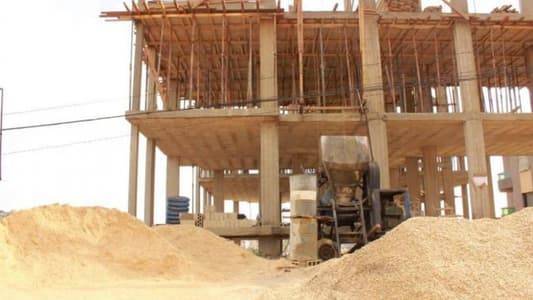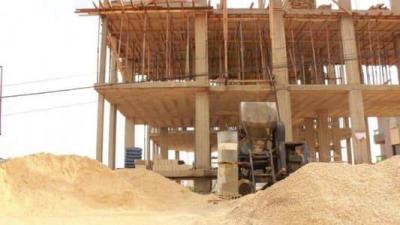The earthquake in Turkey has opened questions about the chaos in the construction sector in Lebanon, where some traders have turned into engineers that disregard the necessary specifications. Some residents in the Nabatieh region live on edge, fearing that their buildings may be made of paper, especially since "cracks" have started to appear on their walls from the first year. These are commercial buildings in every sense of the word, failing to adhere to safety standards in areas that lie above seismic faults more prone to destruction than others. Most of the buildings constructed recently in Lebanon, specifically after 2012, are not earthquake-resistant. There is no commitment to the enforcement of the public safety decree issued in 2005, simply because some building traders have become more prominent than the engineers. The sector has not been monitored and has been characterized by chaos throughout the past years.
What raises suspicion is the manipulation that has afflicted the construction process, and more dangerously, everyone is aware of the fraud yet remains a bystander. Many engineers assert that numerous commercial residential buildings do not comply with public safety standards, with some going so far as to say that manipulation of construction materials could lead to a disaster at the first strong quake. In this context, contractor Mohsen reveals that "manipulation starts from the building's foundations, as the traders themselves reduce the quantity. If a column requires, for example, 10 iron rods, they reduce it to 7. They also tend to cut back on the required amount of mortar and iron, while increasing the plaster and sand, which negatively affect the buildings and cause them to crack during the rainy season."
In times of chaos, the engineer has been absent while the trader has taken the forefront. Shopkeepers and greengrocers have turned into engineers and supervisors, taking advantage of the lack of municipal oversight and specialized authorities. Engineer Hatim Ghabris states that "most commercial buildings do not comply," raising a serious issue: who has given the authority to building traders? With the engineering syndicate absent from the construction sector, the engineer's role has become limited, according to Ghabris, to issuing building permits only, which has further propagated chaos: "Every trader operates under their own account." He points out that "manipulation involves reducing the quantities of iron, mortar, and sand due to rising prices, which is a 'smart' plan by traders to achieve multiplied profits. The impact of this falls on the citizen, who is the first and last victim." He adds that "most of the apartments that suffer from cracks and splits may collapse at the first strong quake," holding everyone accountable. He notes, "The danger does not stop here; rather, there are several buildings constructed above water springs that require specific technology to be adopted in their foundations. These criteria are not being applied on the ground, as we observe today with water seeping from some buildings."
Today, we stand at the threshold of a wave of recurrent tremors. Who will hold accountable the traders who asserted themselves during times of crisis? The construction sector has witnessed a golden age, earning the title "the gold sector" due to the huge profits made by investors. An apartment that cost $25,000 was sold for $60,000 or $70,000. Now, buildings are precariously "standing on the edge of tremors and points" of imminent danger. In light of this frightening reality, is there anyone to hold accountable and monitor? What good is it after disasters occur and lives are lost?




